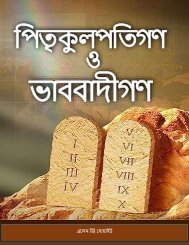Finishing the Race
Of all the games instituted among the Greeks and the Romans, the races were the most ancient and the most highly esteemed … The contests were governed by strict regulations, from which there was no appeal. Those who desired their names entered as competitors for the prize had first to undergo a severe preparatory training. Harmful indulgence of appetite, or any other gratification that would lower mental or physical vigour, was strictly forbidden. For one to have any hope of success in these trials of strength and speed, the muscles must be strong and supple, and the nerves well under control. Every movement must be certain, every step swift and unswerving; the physical powers must reach the highest mark.
Of all the games instituted among the Greeks and the Romans, the races were the most ancient and the most highly esteemed … The contests were governed by strict regulations, from which there was no appeal. Those who desired their names entered as competitors for the prize had first to undergo a severe preparatory training. Harmful indulgence of appetite, or any other gratification that would lower mental or physical vigour, was strictly forbidden. For one to have any hope of success in these trials of strength and speed, the muscles must be strong and supple, and the nerves well under control. Every movement must be certain, every step swift and unswerving; the physical powers must reach the highest mark.
Create successful ePaper yourself
Turn your PDF publications into a flip-book with our unique Google optimized e-Paper software.
specially entrusted, was alarmed and enraged. He saw that <strong>the</strong> result would be disastrous to<br />
<strong>the</strong> papal cause. To institute inquiry into a case in which <strong>the</strong> pope had already pronounced<br />
sentence of condemnation would be to cast contempt upon <strong>the</strong> authority of <strong>the</strong> sovereign<br />
pontiff. Fur<strong>the</strong>rmore, he was apprehensive that <strong>the</strong> eloquent and powerful arguments of this<br />
man might turn away many of <strong>the</strong> princes from <strong>the</strong> cause of <strong>the</strong> pope. He <strong>the</strong>refore, in <strong>the</strong><br />
most urgent manner, remonstrated with Charles against Lu<strong>the</strong>r's appearance at Worms.<br />
About this time <strong>the</strong> bull declaring Lu<strong>the</strong>r's excommunication was published; and this,<br />
coupled with <strong>the</strong> representations of <strong>the</strong> legate, induced <strong>the</strong> emperor to yield. He wrote to <strong>the</strong><br />
elector that if Lu<strong>the</strong>r would not retract, he must remain at Wittenberg.<br />
Not content with this victory, Aleander laboured with all <strong>the</strong> power and cunning at his<br />
command to secure Lu<strong>the</strong>r's condemnation. With a persistence worthy of a better cause, he<br />
urged <strong>the</strong> matter upon <strong>the</strong> attention of princes, prelates, and o<strong>the</strong>r members of <strong>the</strong> assembly,<br />
accusing <strong>the</strong> Reformer of "sedition, rebellion, impiety, and blasphemy." But <strong>the</strong> vehemence<br />
and passion manifested by <strong>the</strong> legate revealed too plainly <strong>the</strong> spirit by which he was<br />
actuated. "He is moved by hatred and vengeance," was <strong>the</strong> general remark, "much more than<br />
by zeal and piety."-- Ibid., b. 7, ch. 1. The majority of <strong>the</strong> Diet were more than ever inclined<br />
to regard Lu<strong>the</strong>r's cause with favour.<br />
With redoubled zeal Aleander urged upon <strong>the</strong> emperor <strong>the</strong> duty of executing <strong>the</strong> papal<br />
edicts. But under <strong>the</strong> laws of Germany this could not be done without <strong>the</strong> concurrence of <strong>the</strong><br />
princes; and, overcome at last by <strong>the</strong> legate's importunity, Charles bade him present his case<br />
to <strong>the</strong> Diet. "It was a proud day for <strong>the</strong> nuncio. The assembly was a great one: <strong>the</strong> cause was<br />
even greater. Aleander was to plead for Rome, . . . <strong>the</strong> mo<strong>the</strong>r and mistress of all churches."<br />
He was to vindicate <strong>the</strong> princedom of Peter before <strong>the</strong> assembled principalities of<br />
Christendom. "He had <strong>the</strong> gift of eloquence, and he rose to <strong>the</strong> greatness of <strong>the</strong> occasion.<br />
Providence ordered it that Rome should appear and plead by <strong>the</strong> ablest of her orators in <strong>the</strong><br />
presence of <strong>the</strong> most august of tribunals, before she was condemned." --Wylie, b. 6, ch. 4.<br />
With some misgivings those who favoured <strong>the</strong> Reformer looked forward to <strong>the</strong> effect of<br />
Aleander's speech. The elector of Saxony was not present, but by his direction some of his<br />
councillors attended to take notes of <strong>the</strong> nuncio's address.<br />
With all <strong>the</strong> power of learning and eloquence, Aleander set himself to overthrow <strong>the</strong><br />
truth. Charge after charge he hurled against Lu<strong>the</strong>r as an enemy of <strong>the</strong> church and <strong>the</strong> state,<br />
<strong>the</strong> living and <strong>the</strong> dead, clergy and laity, councils and private Christians. "In Lu<strong>the</strong>r's errors<br />
<strong>the</strong>re is enough," he declared, to warrant <strong>the</strong> burning of "a hundred thousand heretics." In<br />
conclusion he endeavoured to cast contempt upon <strong>the</strong> adherents of <strong>the</strong> reformed faith:<br />
"What are all <strong>the</strong>se Lu<strong>the</strong>rans? A crew of insolent pedagogues, corrupt priests, dissolute<br />
monks, ignorant lawyers, and degraded nobles, with <strong>the</strong> common people whom <strong>the</strong>y have<br />
misled and perverted. How far superior to <strong>the</strong>m is <strong>the</strong> Catholic party in number, ability, and<br />
power! A unanimous decree from this illustrious assembly will enlighten <strong>the</strong> simple, warn<br />
<strong>the</strong> imprudent, decide <strong>the</strong> waverers, and give strength to <strong>the</strong> weak." --D'Aubigne, b. 7, ch. 3.<br />
87


















